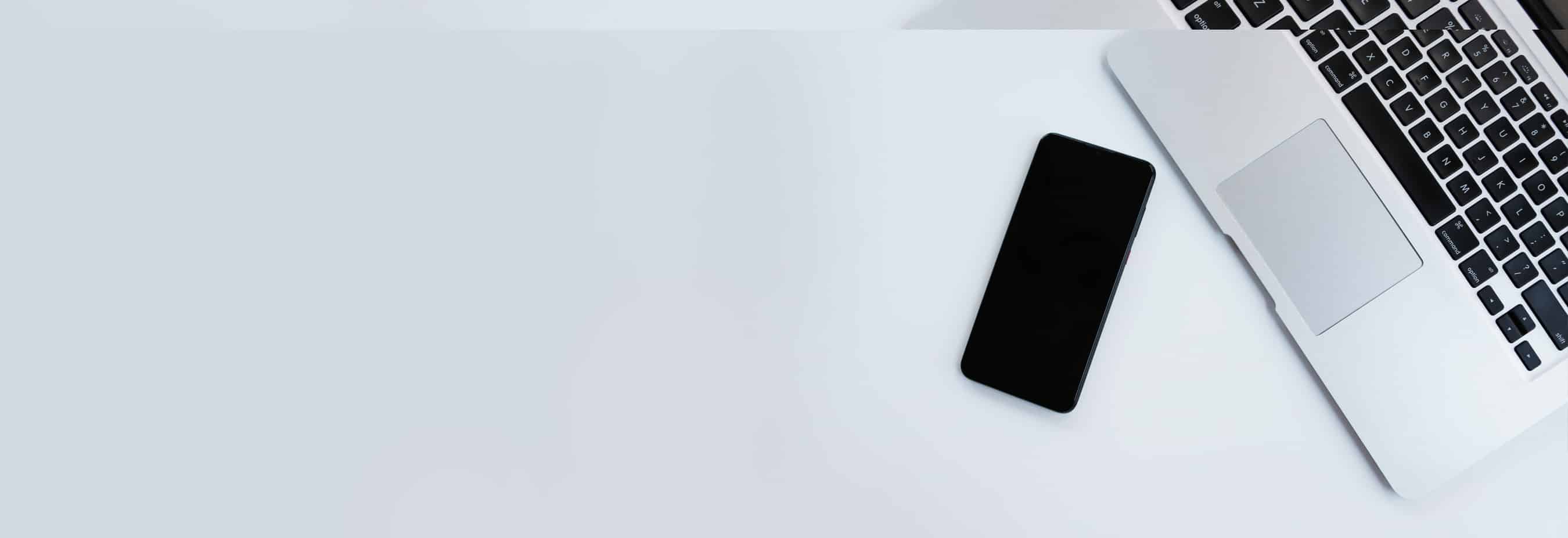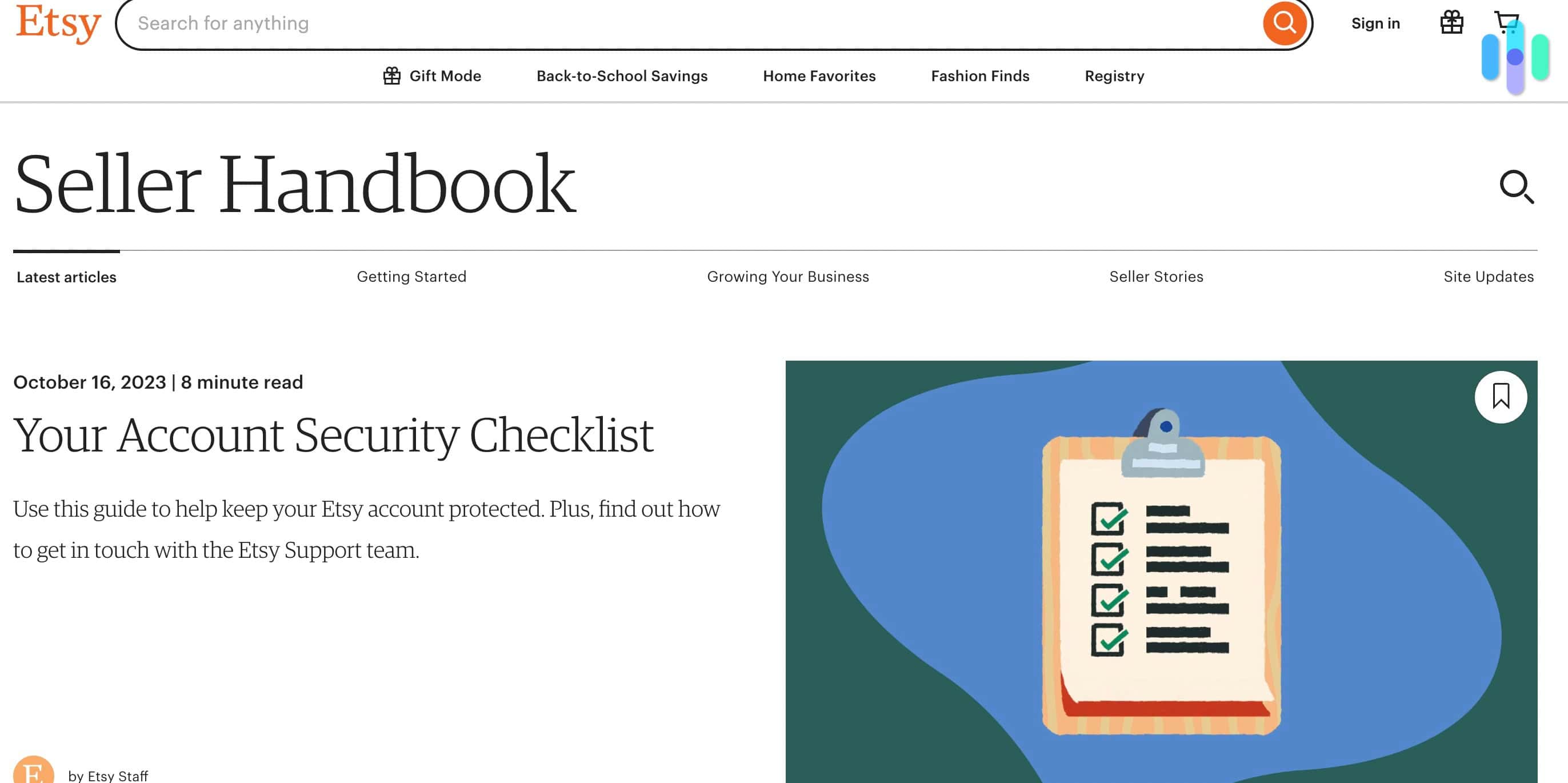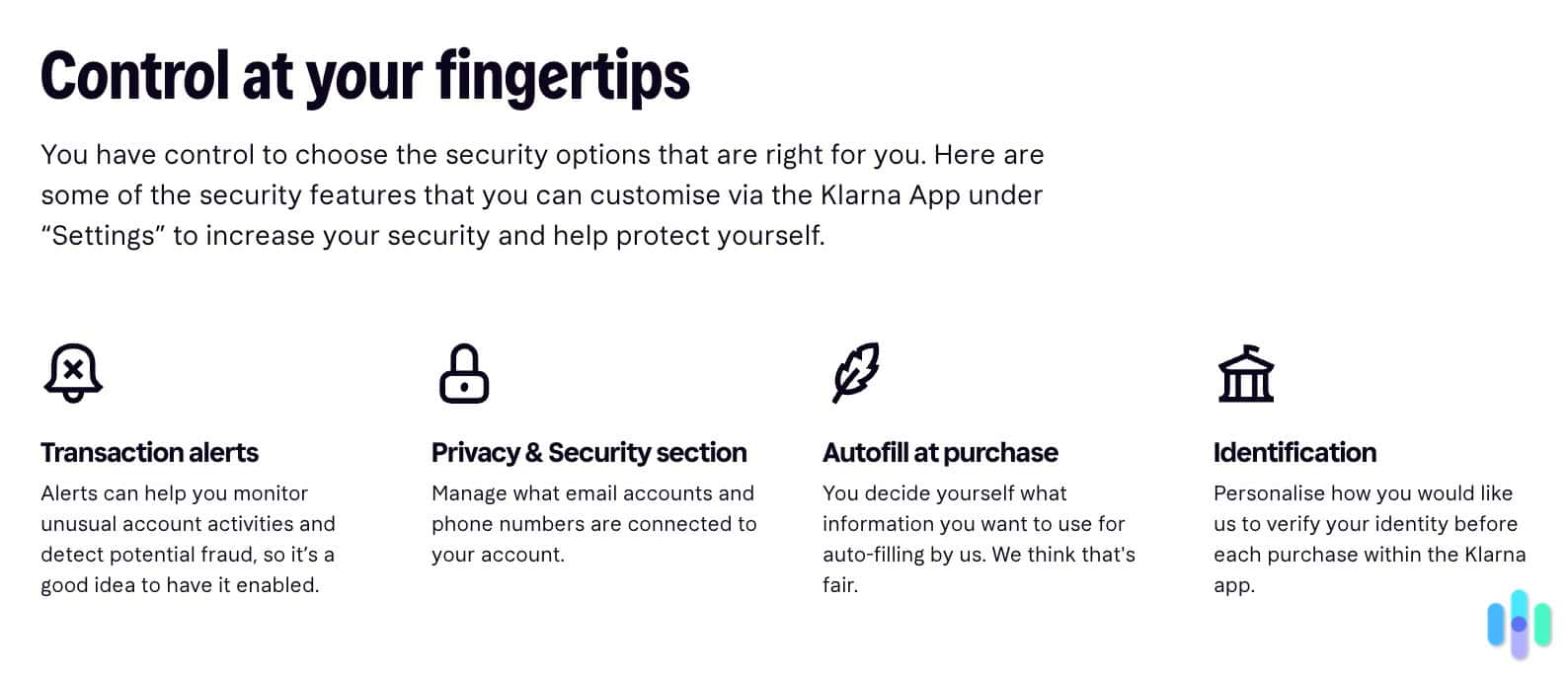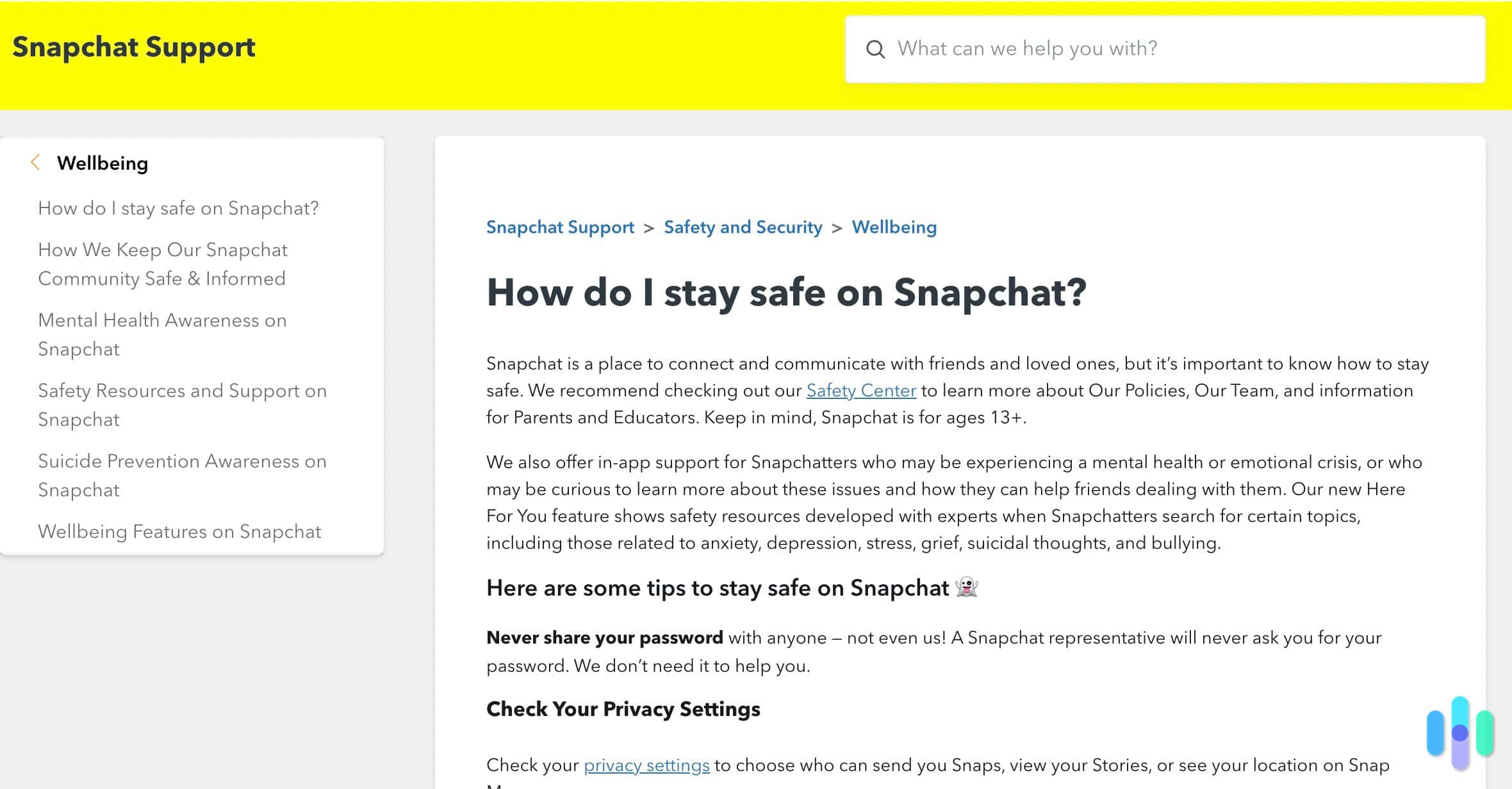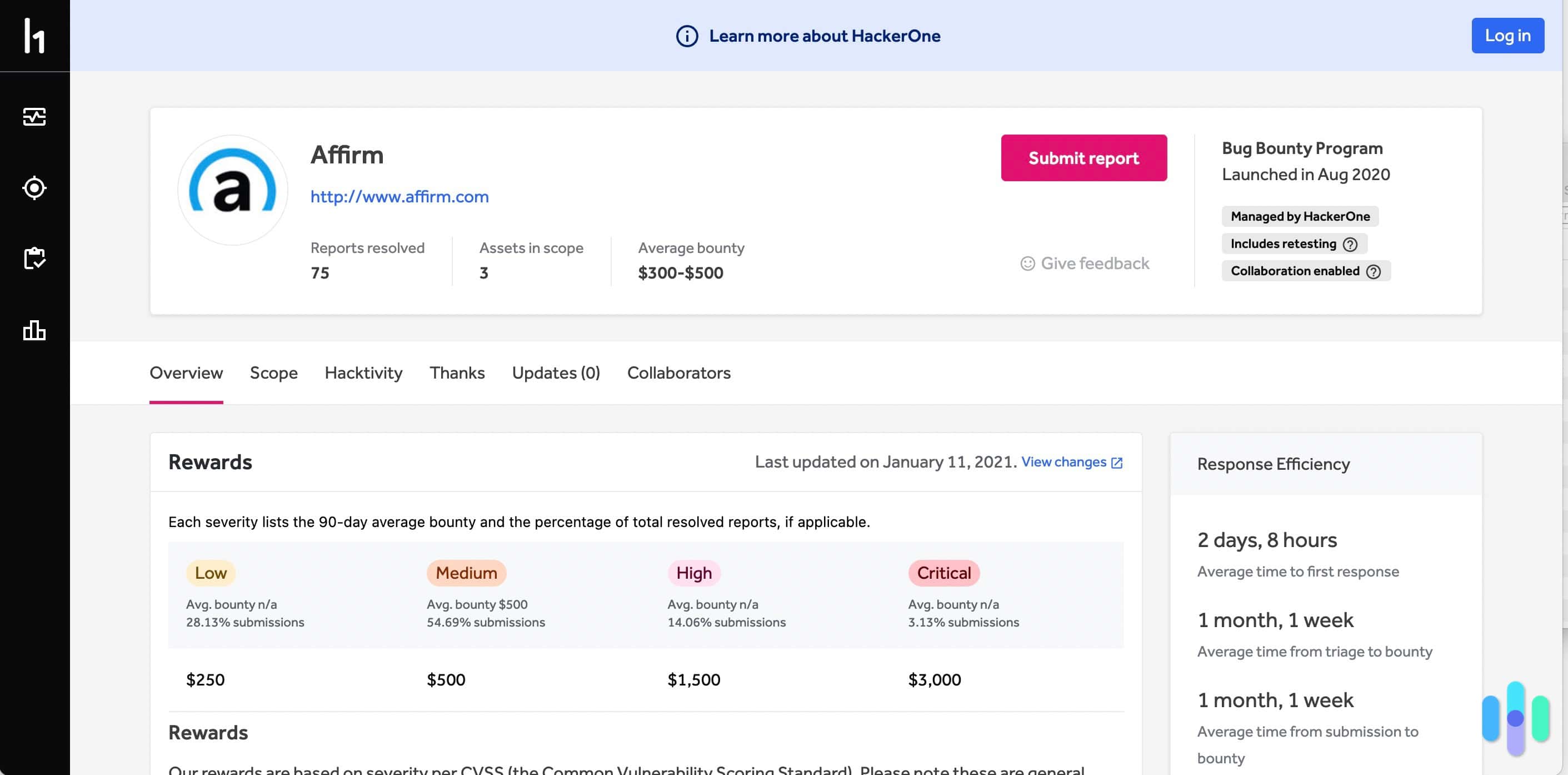Founded in September 1995 during the heyday of the dot-com boom by billionaire Pierre Omidyar, eBay is a name that still rings across the world today. The online auction firm continues to thrive, with more than 130 million active users with some 2 billion seller listings on the site.1 From rare vintage records and popcorn-scented pillows to the entire town of Albert, Texas, being sold (no joke), there’s something for everyone on eBay.
But while the company is still thriving, it’s a good thing to also look at the site’s security. The convenience and speed of the service is enticing, but is eBay safe? After all, with a service that thrives off of speedy transactions with private buyers and sellers, there’s a good amount of personal and financial information submitted to the site every day. So, can you trust eBay to maintain your personal digital security?
We know that security is of utmost importance, so we took a closer look at these questions. Below you’ll find all the details on what we discovered about eBay.
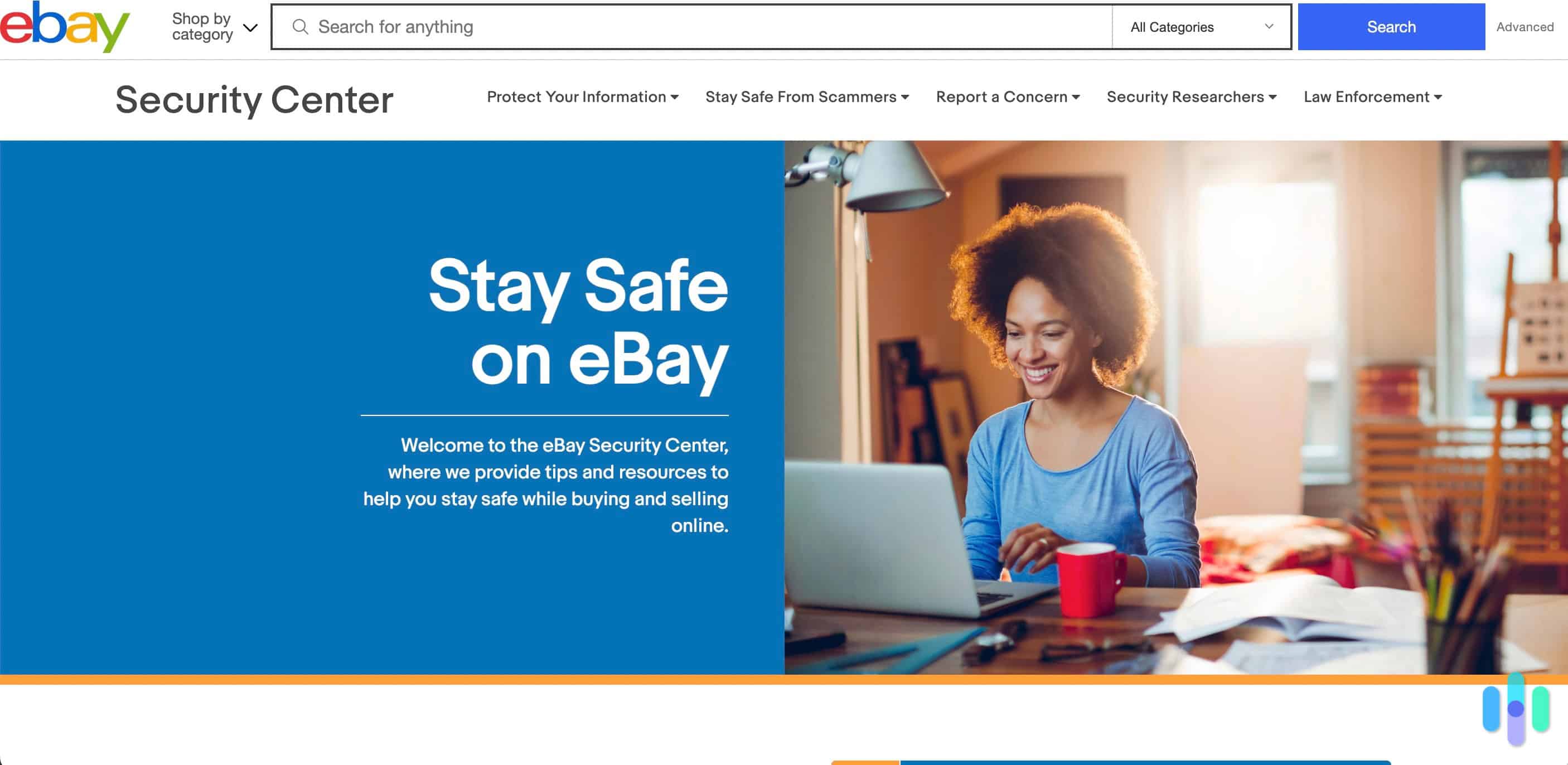
But first, here are a few facts about eBay:
| Who owns eBay? | eBay is a publicly traded company, which means its shareholders own it, including institutional investors like State Street Corporation and BlackRock. Co-founder Pierre Omidyar still holds a massive chunk of the company. |
|---|---|
| When was the company founded? | 1995 |
| How many users does it have? | 135 million active users |
| How much does it charge? | An average of between 10% and 15.55% of the final selling price in fees |
Is It Safe to Use eBay?
With our long extensive background in digital security, we’re happy to report that eBay is another large internet company that is generally safe to use. This means that you can trust eBay with your personally identifiable information or PII. But throughout this piece, we will give a rundown of some things to look out for and to avoid.
eBay’s privacy policy explains that it does collect some personal data in order to deliver its experience, but uses network security services and data encryption, among other tools, to keep that data safe. eBay also hires data protection officers in places like the United States, Canada, the United Kingdom, and India to shore up this commitment.
>> Also See: DuckDuckGo: Is It Safe?
Even without all of these protections and assurances, nothing is entirely safe. It is up to each individual user to incorporate best practices, like using a random password generator for your login credentials. But you won’t find many sites safer than eBay.
How eBay Keeps You Safe
Let’s look at some of the ways that eBay keeps you and your information safe. The site uses a number of measures to thwart unauthorized access and disclosure of data.2 Some of these measures include:
- Secure payment information: eBay keeps your payment information secure by never sharing payments data with the seller. You’ll see eBay on your card statements.
- Encryption: The world and the World Wide Web are awash with data. Encryption is the first line of defense. eBay uses 128-bit encryption to keep its buyers and sellers safe as they navigate pages to make transactions.
Did You Know: Encryption these days can involve 128-bit, 192-bit, or 256-bit keys. Specifically, 256-bit encryption uses the Advanced Encryption Standard (AES) to transform the data 14 times, whereas a 128-bit key undergoes only 10 transformation rounds. For reference, even the best free VPNs use 256-bit encryption to maximize security.
- Secure transactions: eBay maintains a Level 1 certification according to Payment Card Industry Data Security Standards. Level 1 certification is the highest level of certification and requires the most rigorous security protocols. These gateways also go through a yearly audit, making sure quality remains consistently high and up to date.
- Firewalls and other unauthorized access prevention: eBay also implements firewalls, access controls, and other procedures to protect systems and information from unauthorized access. You should use a firewall too. If you’re not already using one, take a look at our roundup of the best firewalls.
- eBay’s buyer protection programs: Buyers are able to request a refund in case of damaged, undelivered, or inaccurately described goods, and sellers get protection in case of abusive buyer behavior or events outside their control. But that doesn’t make you immune to fraud on eBay. That’s why we still recommend using a top identity theft protection service with fraud detection if you regularly use online marketplaces.
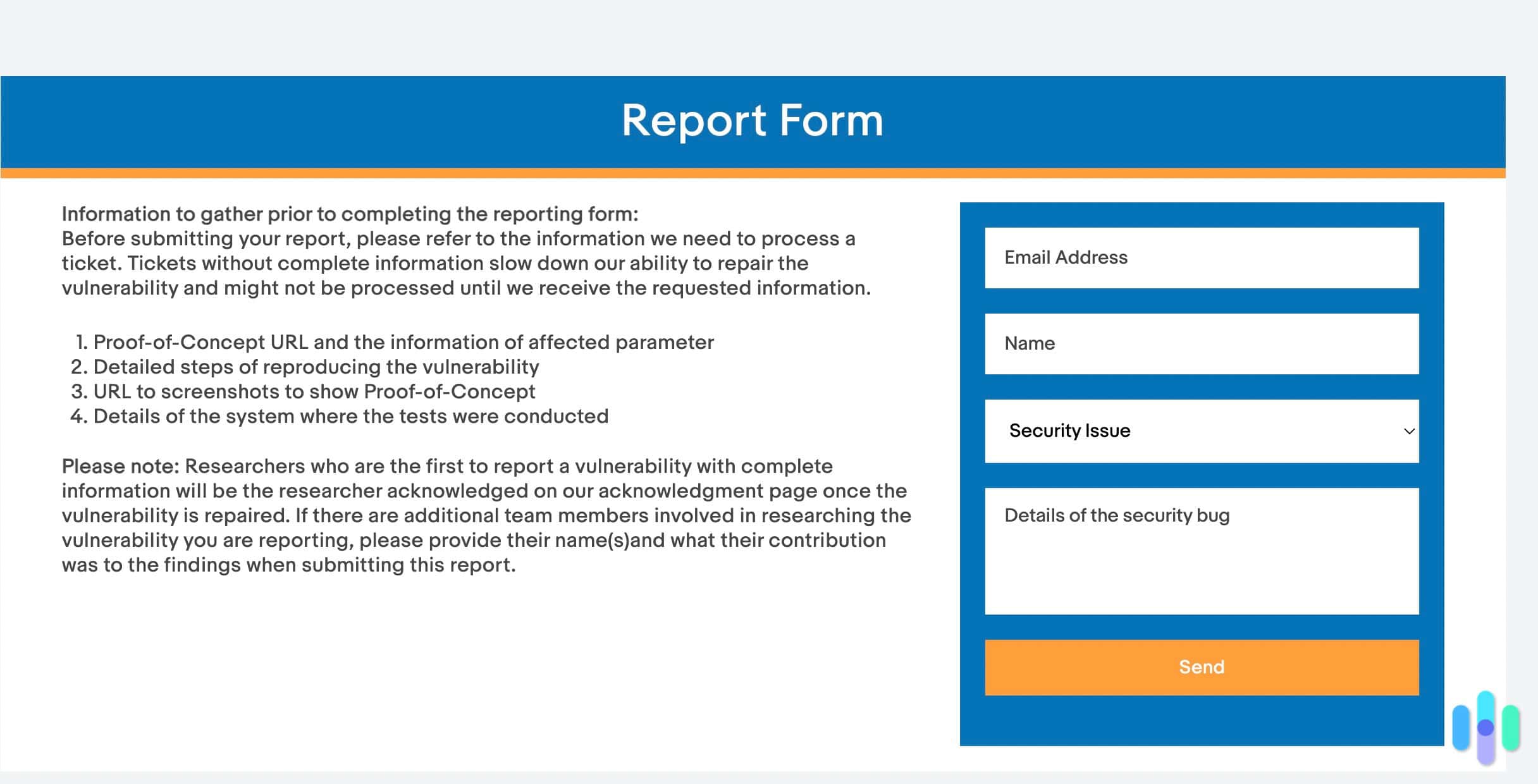
eBay’s Privacy Policy
eBay has a robust privacy policy that it readily discloses to the public. It’s important that companies openly share how they collect data and what data they collect. Nowadays, most companies are required to disclose this information due to regulations like the California Consumer Privacy Act and the General Data Protection Regulation in the EU.
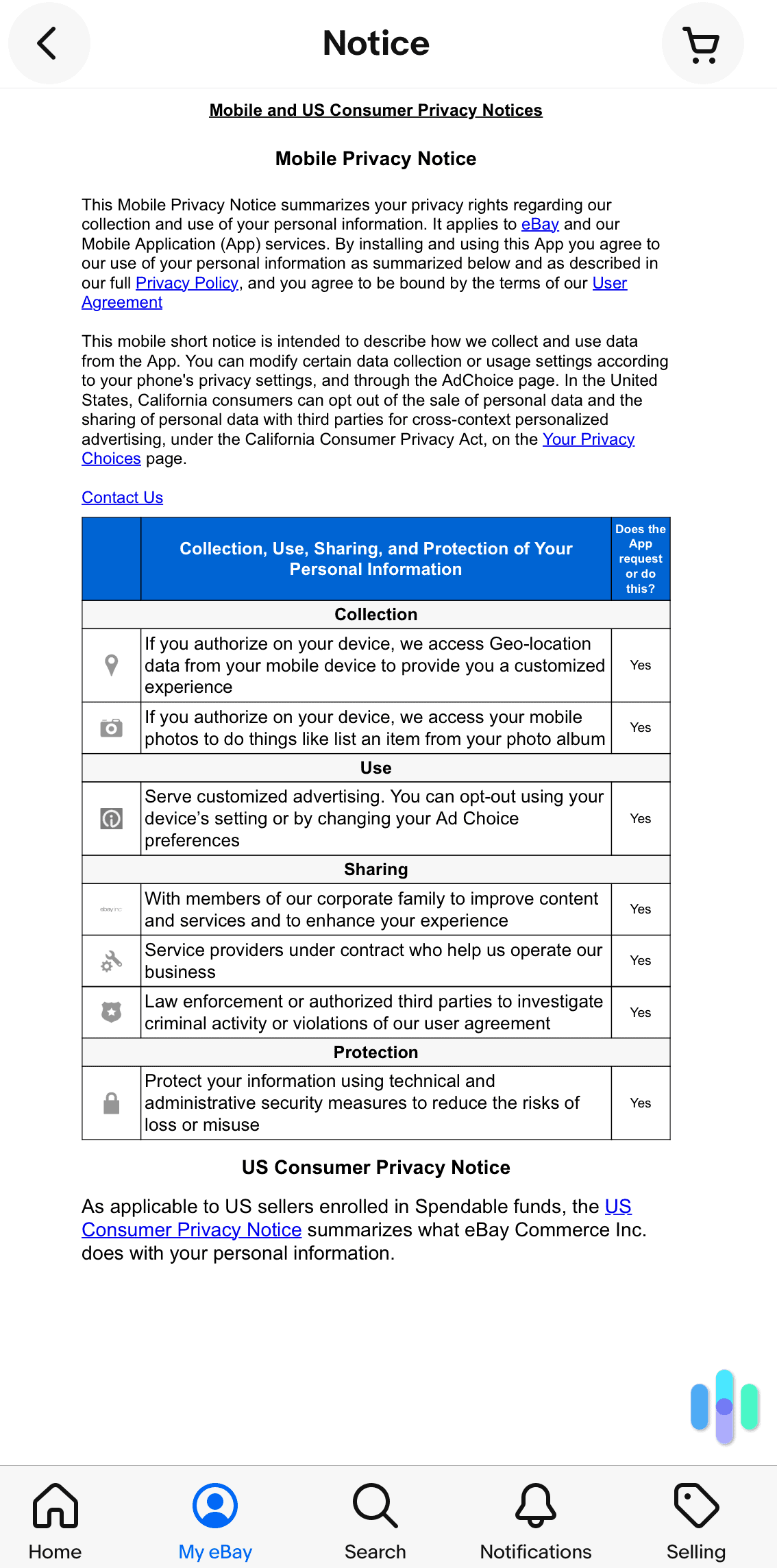
The privacy policy begins with a rundown of when eBay collects data: “We collect your personal data when you use our Services, create a new eBay account, provide us with information via a web form, add or update information in your eBay account, participate in online community discussions or otherwise interact with us.” Clauses like this are typical of the big tech companies that collect data on you.
On top of what’s specified in the privacy policy, eBay also collects data in other contexts and from third parties to the extent permitted by applicable law. It might also collect data from social media sites when you use sign-in services like Google, Facebook, and Apple. If you don’t want that data to be potentially collected, do not use such sign-in services.
Pro Tip: All too often, we see people using their real name as their eBay username. We highly recommend you avoid this so that you can stay more anonymous online while still using the marketplace. This keeps a layer of separation between you and the people you buy from and sell to on eBay.
Like many big companies sitting on so much data, eBay vows to take steps to protect users and their privacy. eBay does not share personal information with third parties for its own direct marketing purposes without obtaining your consent or providing the ability to opt out.
Protecting Yourself While Using eBay
Before you place a bid on that yodeling pickle or those retro X-ray glasses, you need to know how to protect yourself as you navigate buying and selling. Here are a few recommendations:
- Change your password regularly. We already talked about using a password manager to set a safe and secure password. We also have a free password checker to confirm that the password set is a good one. But beyond that, you should be also changing your password to avoid problems if your eBay account is compromised or hacked. In that case, you should change the password for both your eBay account and personal email account. Your email password should be different from your eBay password.
- Add a passkey and two-step verification. There are other ways to login to eBay besides a regular password. Passkeys are an alternative to passwords that allow you to sign in to your eBay account using a fingerprint, pattern, PIN, or other kinds of biometric authentication. Two-step verification adds a layer of protection as well and makes sure that only you can access your account, even if someone else has obtained your password.
- Beware of spoof or phishing emails. These kinds of emails appear to be from eBay but are not. They are sent with the goal of accessing sensitive information like passwords. If you receive a suspicious email claiming to be from eBay, do not open it and report it to spoof@ebay.com. The company will investigate all such reports.
Defining Tech Terms: In phishing, scammers use email or text messages to try to steal your passwords, account numbers, or Social Security number. Phishing can involve emails and text messages, so watch out for both. For more information, read our guide to recognizing these scams.
- Use a VPN. In 2024, not using a virtual private network or VPN is downright malpractice. The best VPNs provide an extra layer of protection when you’re online. A VPN encrypts your online activity and assigns your device an anonymous IP address so you can’t be tracked.
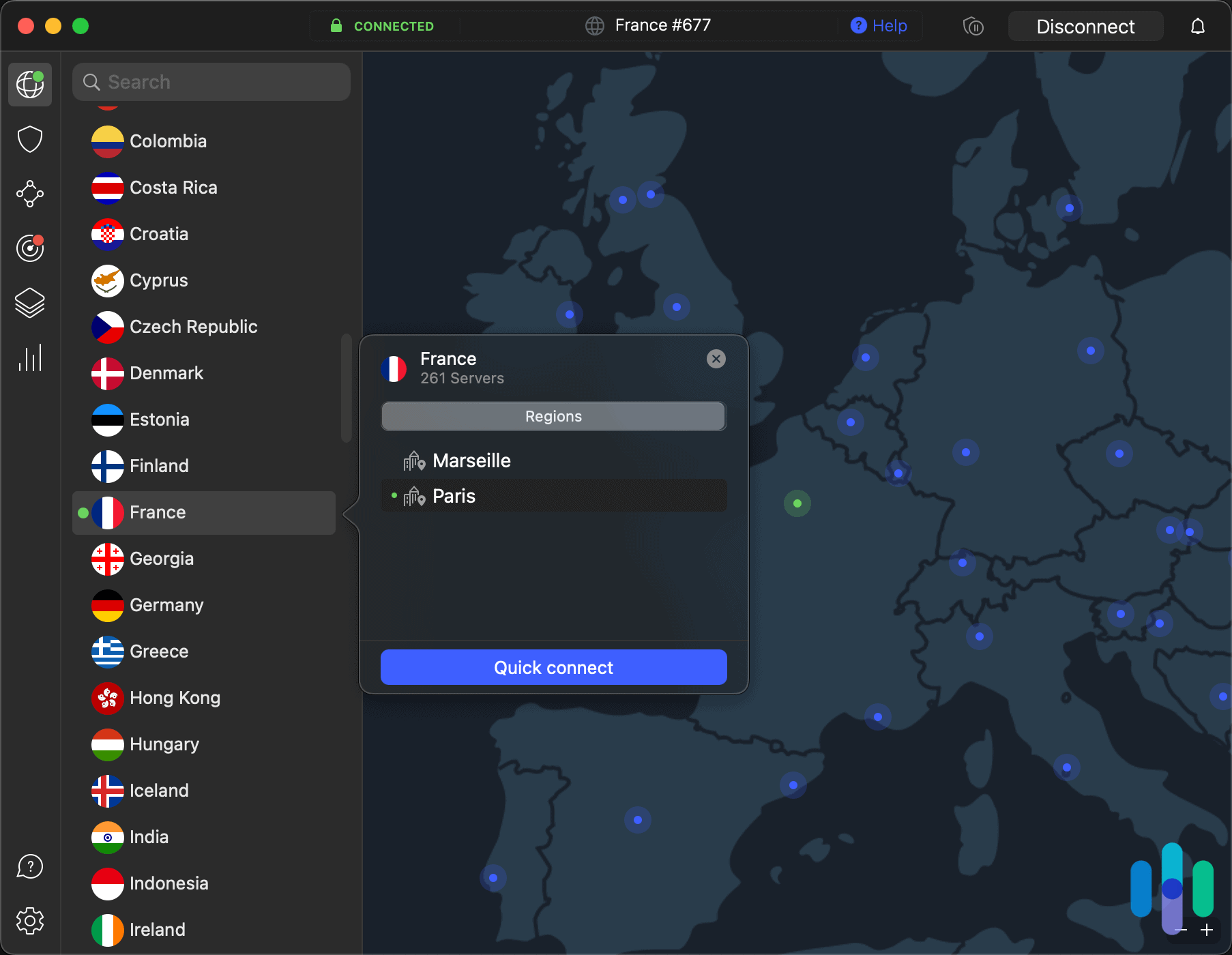
- Don’t disclose any payment details. In the case of eBay, you can use the site as a buyer or as a seller. But you should never disclose payment information to another user in either context. Instead, all transactions should go through eBay. You also should never give your login information to someone else.
Recap
Back in 2006, someone placed a starting bid of $9.50 on a rare sea urchin. Such are the zany opportunities possible on eBay, one of the world’s biggest online marketplaces. But this is also why we’re glad to report that eBay is a safe service to use for all of your buying and selling needs. eBay keeps your payment information secure, using high-level encryption; ensures secure transactions; and takes many steps to prevent unauthorized access.
eBay also encourages proactively reporting any issues that arise, including annoying phishing scams that have become so ubiquitous these days. But just the fact that eBay encourages you to reach out to it when those occur is encouraging. The site’s exhaustive privacy policy also is frequently updated, and users should keep an eye on that page for the latest news and updates.
Overall, eBay is still a great service and site to use in 2024, and it’s safe to boot.
FAQ
Before you go, here’s a quick rundown of some of our most frequently asked questions about eBay’s safety and security.
-
Can I trust eBay?
In a word: yes. eBay is another large internet company that is generally safe to use, and you can trust the service with your PII. It also uses encryption and secure transactions to keep your data safe.
-
Does eBay sell your information?
Absolutely not. eBay vows not to share sensitive information with third parties for its own direct marketing purposes without obtaining a user’s consent.
-
Has eBay ever been hacked?
In 2014, eBay suffered a massive security breach and suggested that all users change their passwords. But the company claims there was “no evidence of the compromise resulting in unauthorized activity for eBay users, and no evidence of any unauthorized access to financial or credit card information.”
-
Who owns eBay?
The company was founded by Pierre Omidyar, former chair. It is a publicly traded company whose shareholders include State Street Corporation.
-
What was the most expensive item ever sold on eBay?
Russian oil mogul Roman Abramovich bought a 405-foot yacht worth $168 million.

